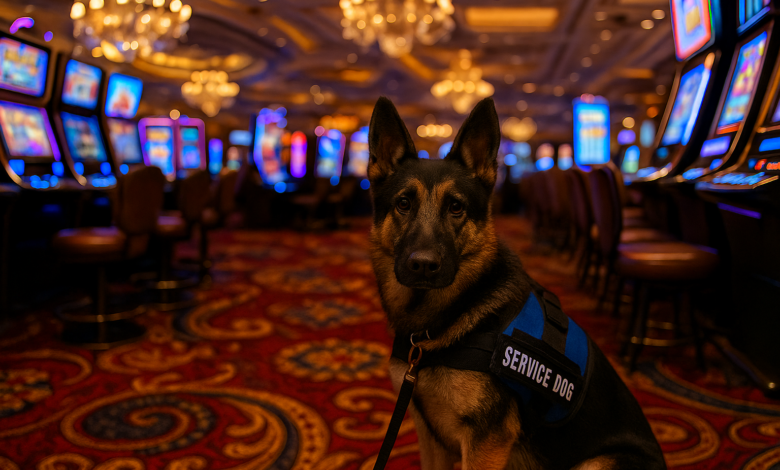Can a Service Dog Be Asked to Leave an Establishment in Las Vegas?

When most people think of service dogs, they picture a highly trained animal quietly supporting a person with a disability — and for good reason. Under both federal and Nevada state law, service dogs are granted broad access rights, meaning they can accompany their handler into restaurants, hotels, stores, and other public spaces where pets aren’t normally allowed. But there’s an important caveat that many don’t realize: those rights are not unlimited. So yes, even in Las Vegas, a service dog can be asked to leave an establishment — but only under specific circumstances.
When a Business Can Say No
Let’s start with what the law says. Under the Americans with Disabilities Act (ADA), businesses must allow service animals to accompany their handlers in all areas of the facility where the public is normally allowed to go. In Nevada, those protections are mirrored and enforced at the state level as well. But just because a dog is labeled a service animal doesn’t mean it gets a free pass to misbehave.
According to the ADA, a business has the legal right to ask that a service dog be removed if the animal is:
- Not housebroken
- A direct threat to the health or safety of others
- Out of control and the handler does not take effective action to control it
This means that if a service dog is barking aggressively at customers, lunging at employees, relieving itself on the floor, or otherwise causing a disruption, the business can — and should — intervene.
What Happens If a Dog Is Removed?
If a business asks that a service dog be removed for one of the above reasons, they must still allow the individual with the disability to continue their visit without the dog. For example, a handler might be allowed to finish their meal in a restaurant while the dog is taken outside or picked up. The removal of the dog cannot be used as an excuse to deny the person access altogether.
It’s also worth noting that this rule applies regardless of whether the animal is a certified service dog, emotional support animal, or therapy dog. Only trained service animals are protected under the ADA, and even then, their behavior must meet a basic standard of public conduct.
Why This Matters in Vegas
In a place like Las Vegas, where businesses range from small boutiques to massive casino floors, the high volume of foot traffic, noise, and excitement can create tough environments for even the best-trained service animals. Business owners are expected to accommodate service dogs — but they’re also allowed to protect the comfort and safety of other patrons.
Handlers visiting the Strip with a service dog should ensure their animal is well-socialized, obedient in chaotic settings, and able to handle long hours in public without issue. Likewise, businesses should train staff to recognize when a service dog is behaving appropriately — and when they are within their rights to take action.
